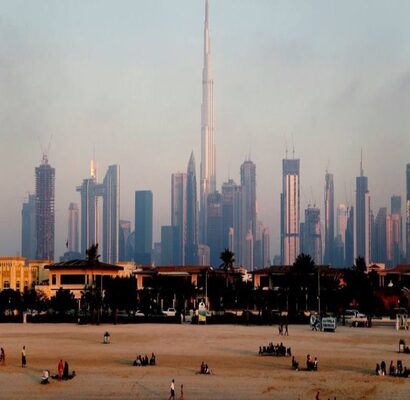As published in THEHIU
By Huynh Nguyen

The United Arab Emirates government has told some of its biggest business families that it intends to remove its monopoly on selling imported goods as the Gulf nation ramps up economic reforms in an effort force to attract more investment.
For decades, multinational companies have had to appoint local partners to distribute their goods. The government has proposed legislation to end the automatic renewal of existing commercial agency agreements, giving foreign companies flexibility in distributing their own goods or changing their local agents. when the contract expires.
An Emirati official said: “It no longer makes sense for individual families to have such easy access to power and preferential access to wealth. “We have to modernize our economy.” Officials have indicated that the new law is expected to be approved by the Emirati leadership but the timing remains uncertain. The UAE government was not available for comment.
The proposed reform would break the age-old social contract between the government and influential merchant families, including long-established names like Al Futtaim, Al Rostamani and Juma Al Majid, replacing decades of protection. protect local interests on behalf of foreign entities. “This is one of the most taboo due to its effect on local family-owned businesses,” said Habib Al Mulla, executive chairman of the Middle East branch of law firm Baker McKenzie. one of the largest sectors of the UAE economy.
Family-owned businesses, ranging from small companies to corporations built over decades by leading groups of merchants, make up 90% of the UAE’s private sector, accounting for about three-quarters of jobs.
The changes are part of the UAE’s efforts to attract more investment through competitive legal and social changes, such as less restrictive and long-term residency programs. for cohabitation and drinking.
The pace of reform has been accelerated amid nascent economic competition with neighboring Saudi Arabia. The kingdom, part of a plan to diversify away from hydrocarbons, has imposed tariffs on Gulf imports and is pressuring multinationals to move their regional headquarters to Riyadh.
Alarmed at the proposed rate of change, leading merchant families have lobbied for Dubai’s deputy ruler, Sheikh Maktoum bin Mohammed al-Maktoum, who spoke briefly on the matter.
Dubai’s business families dominate the retail sector that underpins the city’s thriving tourism sector, which is rebounding as the country’s successful handling of the pandemic draws visitors and residents alike. new. When commercial agency contracts expire, local dealers are expected to receive compensation for their investment in retail infrastructure and sales networks.
“Consumers will benefit if the model moves from one sole agent to many distributors. However, the local agents have invested heavily in these agents and it would be fair to at least give them a few years to find a better model with foreign representative companies or recover the investment. theirs,” said Al Mulla.
In recent years, several new entrants, including Apple and Tesla, have been allowed to open their own stores without the need for a local dealer. Other multinationals have asked their local partners to change agency arrangements into joint ventures, giving them more control over marketing and enhancing their potential profits. Merchant families, realizing the inevitable end of archaic agency agreements, agreed to such requests, the people added.
“This is the right thing to do, but probably not the right way to present it,” said one family business owner. “We must change with the times, but changes also need reference.”
Representatives of family groups say that multinationals, instead of taking over operations in the UAE market with 10 million people, could instead choose to appoint their agents in other countries. part of the Gulf Cooperation Council, such as the more populous Saudi Arabia. One businessman said: “The government thinks that, suddenly, international brands will flood the country, but in reality GCC agencies will dominate.
However, the government believes that opening up the domestic market will lower prices for consumers.
Family businesses also complain that the urgent changes come at a time when the government is relying on the private sector to recruit more citizens.
Over the next five years, the UAE has said that Emiratis will make up 10% of employees in private companies, which often rely on cheap imported labor. “The government needs to think about its relationship with the private sector, especially now that they are looking to put more demands on us,” said an executive at a family group know.



